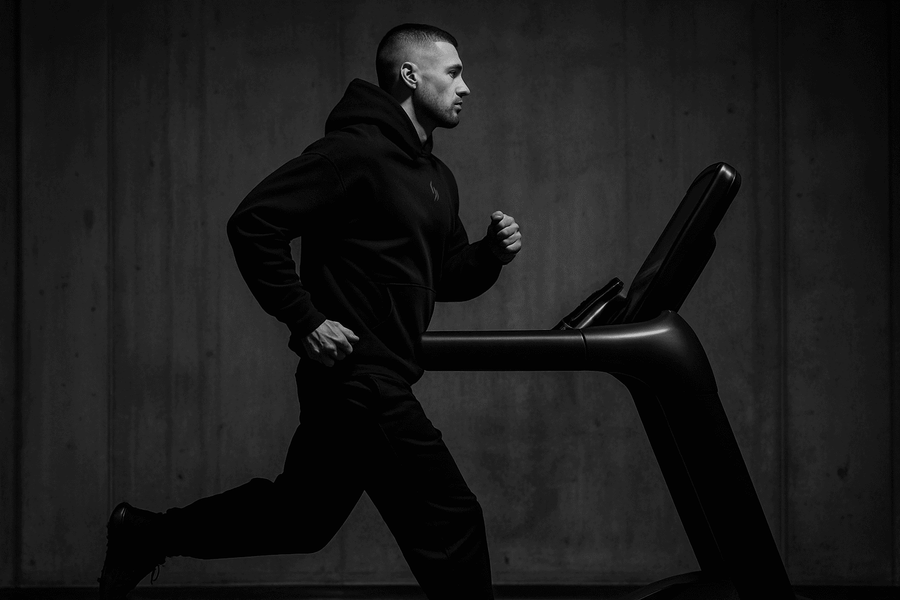
Psychological aspects of recovery in sport
Share
5-7 min reading time
Introduction: Psychological recovery in sport
Imagine you are at the peak of your athletic performance and suddenly an injury puts you out of action. Not only your body but also your mind is affected. This moment of injury is not only a physical challenge, but also a profound psychological experience. The importance of physical recovery is often talked about in sport, but the psychological side of recovery is often underestimated. It is just as crucial for a successful return to usual performance.
In this article we explore the psychological aspects of recovery in sport. We will understand why it is so important to heal not only the body but also the mind. From overcoming the initial shock of an injury to the triumphant “return to play” – this path is not just a physical journey, but above all a mental one. We uncover practical strategies that can help overcome this psychological challenge and show how mental strength, self-esteem and motivation can not only make the path to recovery easier, but also accelerate it.
Join me on this journey and discover how you can optimize your mental recovery in sport to return stronger and more resilient.
Understanding sports injuries and their psychological impact
Sports injuries are not just physical events, they also have a deep psychological impact. Common sports injuries range from muscle strains and torn ligaments to more serious injuries such as cruciate ligament tears. Each injury comes with its own challenges, but they all have one thing in common: They can put a lot of mental strain on athletes.
The psychological consequences of a sports injury are diverse. They range from stress and anxiety to loss of self-esteem. Imagine you are a passionate runner and suddenly an injury forces you to take a break. This can lead to feelings of frustration and helplessness. You may feel isolated as you are no longer able to participate in your favorite activity, which in turn can affect your mood and self-image.
It's important to recognize that these emotional reactions are completely normal. Acknowledging these feelings is the first step in managing the psychological impact of sports injuries. This section is intended to provide a deeper understanding of the psychological aspects of sports injuries and ways to overcome these challenges.
The role of motivation and self-esteem in recovery
The role of motivation and self-esteem in the recovery period cannot be overemphasized. These two psychological factors are crucial for successful recovery.
Motivation is the engine that drives you through the often lengthy and challenging recovery phase. It will help you stick to your rehabilitation plan and make the necessary efforts to get back in shape. Your self-esteem, on the other hand, influences how you perceive yourself during the recovery period. A positive self-image can speed up your recovery, while a negative self-image can slow the process.
Here are some practical tips to increase your motivation and self-esteem during the recovery period:
Set realistic goals : Small, achievable goals can help you develop a sense of progress and maintain your motivation.
Positive Self-Talk : Replace negative thoughts with positive affirmations. Remember that recovery takes time and every step in the right direction counts.
Seek support : Whether it’s from family, friends, or a professional therapist, support can make a big difference.
Visualization : Imagine yourself fully recovered and active again. This mental exercise can be both motivating and inspiring.
By combining these strategies, you can maintain a positive attitude and effectively support your recovery.
Psychological strategies and interventions
There are a variety of techniques in sports psychology that can help athletes recover from injuries and improve their performance. These techniques include mental imagery and goal setting, both of which play crucial roles in psychological recovery.
Mental imagery is a technique in which athletes think intensively about their sport. In doing so, they visualize their movements and processes, which leads to the strengthening of the neural connections that are responsible for actually executing these movements. This method is particularly useful when athletes are physically unable to continue their training, for example due to an injury.
Goal setting is another important element. By setting specific, measurable, achievable, relevant and time-bound goals (SMART goals), athletes can better track their progress and stay motivated. Goals provide clear direction and help maintain focus on the recovery process.
Athlete Case Studies and Examples : Many successful athletes have used these psychological techniques to get back to top form after injury. A prominent example is the ski racer Hermann Maier, who, after a serious motorcycle accident and a long recovery phase through mental training and targeted rehabilitation, became one of the best athletes in his sport again. His story impressively shows how powerful psychological techniques can be in sports recovery.
These psychological strategies and interventions are essential tools in every athlete's arsenal to overcome the challenges of injury and return stronger, both physically and mentally.
The Importance of Return to Play
" Return to Play " (RTP) refers to the process of returning to sport after an injury. This step is both physically and psychologically challenging and requires careful planning and preparation.
The challenges with RTP are diverse. On the one hand, it is important to ensure that the body is fully healed and ready for the stresses of sport. On the other hand, it is just as important that there is psychological preparedness. Many athletes experience fear or uncertainty upon returning, especially if the injury was serious.
Preparing for the RTP therefore includes not only physical training, but also mental training. Sports psychology support can help overcome fears and restore confidence in your own body. Techniques such as mental repetition, visualization of successful play and the development of positive mental attitudes are key elements.
Scientific evidence highlights the importance of psychological preparation for the RTP. Studies show that athletes who are psychologically well prepared to return not only have a lower risk of re-injury, but also return to their previous performance more quickly. This highlights that the mental component is just as important as physical rehabilitation.
Practical tips and exercises
To support psychological recovery in sports, athletes can use various simple exercises and techniques. These practical tips and exercises are not only easy to implement, but can also have significant positive effects on mental health and well-being.
Daily meditation : Even short meditation exercises can help reduce stress and improve concentration.
Journaling : Writing down thoughts and feelings can be an effective way to reflect on the healing process and record progress.
Goal-oriented visualization : Visualize your goals and the path to get there. This technique can be particularly motivating and help you stay focused.
Relaxation techniques : Techniques such as progressive muscle relaxation or breathing exercises can be effective in promoting overall well-being.
Positive Self-Talk : Replace negative thoughts with positive affirmations to build self-confidence and mental strength.
Experts and trainers also recommend taking time for yourself and finding activities that bring you joy and relax away from sport. It is important that you realize that recovery is a process that requires time and patience.
Conclusion
In this article we have taken an in-depth look at the psychological aspects of recovery in sport. We have seen how important it is to consider both the physical and psychological components of recovery. From the importance of understanding and processing sports injuries to the role of motivation and self-esteem, to specific psychological strategies and the challenges of return to play, it is clear that the mental component plays a central role in sports recovery.
Finally, as an athlete in the recovery phase, I would like to give you a few motivating words: Every challenge, every injury is also an opportunity to grow and develop. Recovery is not only a time for physical recovery, but also a time to become mentally stronger. Be patient with yourself and trust the process. Remember that every step, no matter how small, is a step in the right direction. Stay strong and focused, and you will come back not only refreshed, but empowered.
FAQ - Frequently asked questions
How long does psychological recovery take after a sports injury?
The length of psychological recovery varies depending on the individual and the type of injury. While some athletes quickly regain a positive attitude, others may require more time and support.
How can I maintain my motivation during a long recovery period?
Set small, achievable goals and celebrate your progress. Stay connected to your sport even if you can't actively participate and seek support from family, friends or a sports psychologist.
Are mental techniques like mental imagery really effective?
Yes, studies have shown that techniques like mental imagery can speed recovery and improve performance by strengthening the neural connections needed for athletic performance.
What should I do if I'm worried about getting injured again?
Talk to a sports psychologist or therapist about your fears. Work on your confidence through positive self-talk and visualization techniques. It is also important to follow a step-by-step RTP process.
How can I avoid mental fatigue during recovery?
Maintain a balance between rest and light activity. Meditation and relaxation techniques can help reduce stress. Also make sure you get enough sleep and eat a healthy diet.
Can I compete while recovering?
This depends on the nature of your injury and the advice of your medical team. Partial participation is sometimes possible, but it is important not to take unnecessary risks.
How important is nutrition during the recovery period?
Very important. A balanced diet provides the necessary nutrients for physical healing and also supports mental health. Specific nutritional supplements may also be useful but should be discussed with a nutritionist.
You are now familiar with the psychological aspects of recovery in sport. Use this knowledge to support your own recovery or the recovery of others. Remind yourself that every step you take is important. It's time to take action:
Start by applying the techniques and exercises presented in your everyday life.
Share your knowledge and experiences with others to create a community of learning and support.
If you need support or advice, don't hesitate to seek professional help.
Remember that recovery is a process. Stay patient, stay motivated and most of all: stay strong!
